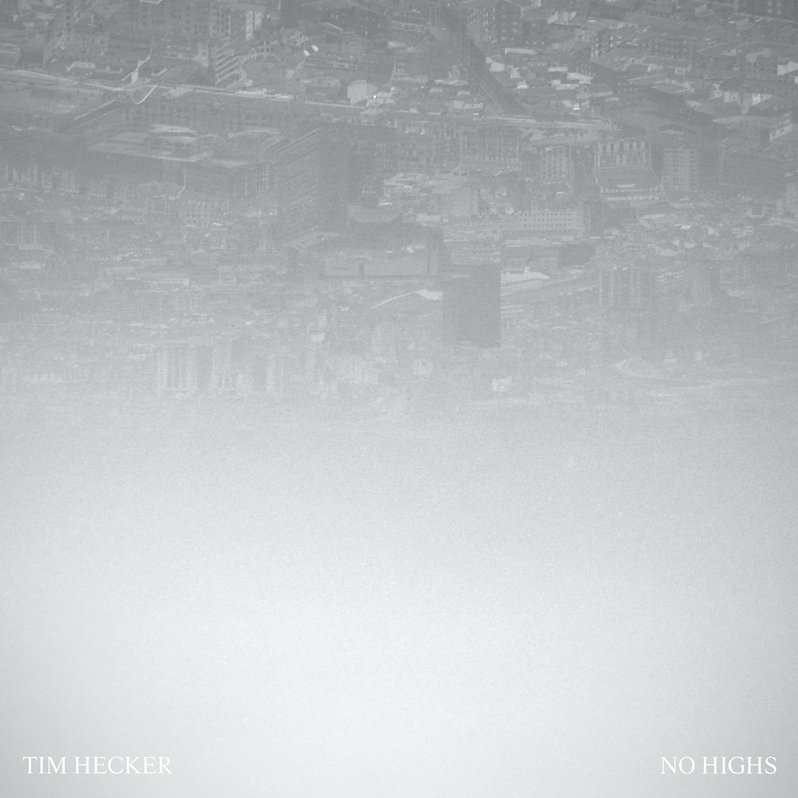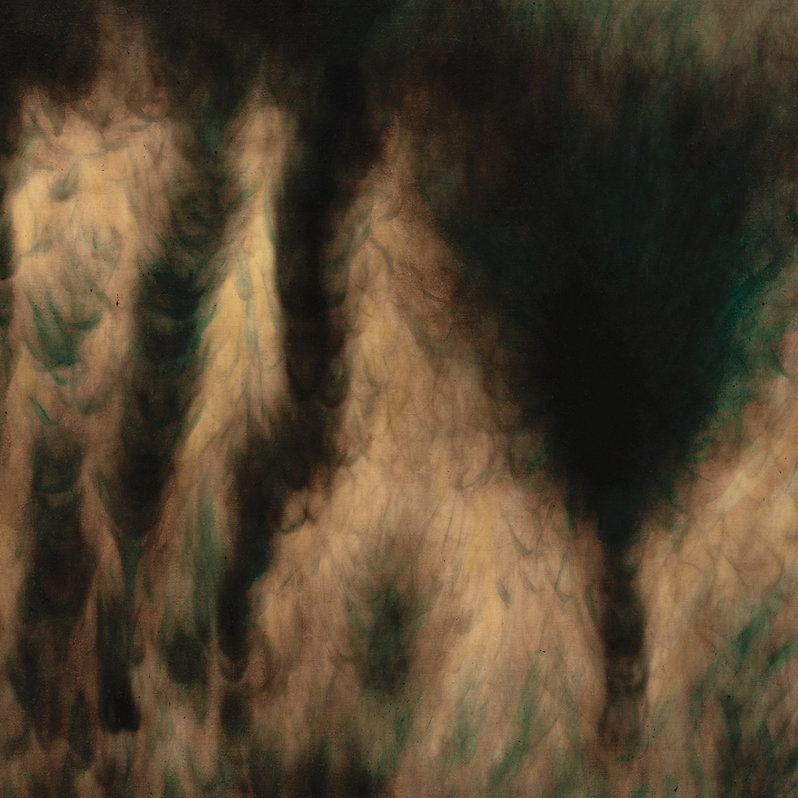Tim Hecker – No Highs

Tim Hecker doesn’t make ambient music so much as channel its abrasive and unsettling underside. The Canadian composer’s body of work is absent of the more overt and obvious rhythmic elements of electronic music—you’d be hard pressed to pinpoint a very literal beat anywhere throughout his oeuvre—but it’s too restless and caustic to give into ambient music’s natural tendency to provide a soothing background that isn’t reliant upon the listener’s close attention. If anything, Hecker’s made a career of crafting atmospheres that jolt and jar, bathing his drones in acid until every last fragment of comfort crumbles off like flakes of rust. Even when presenting an idea that seems meditative on its surface, like the solitary fisherman that inspired 2003’s Radio Amor, Hecker somehow still manages to pull us from the sun-bleached deck and down into the frigid, salty abyss.
The result of Hecker’s sometimes confrontational methods is music with a deeper emotional resonance, whether it take the form of vulnerability in 2018’s Konoyo, fear and menace in 2013’s Virgins, or a deep sense of grieving and melancholy in Ravedeath, 1972. No Highs, true to its name, offers music that revels not in climaxes but in a simmering kind of anxiety, its drones tapping into the feeling of a cannonball weighing down the stomach and the dread of knowing that what’s coming over the horizon is something less than peaceable.
Described in a press release as “purgatorial and seasick,” No Highs eschews the most dramatic permutations of Hecker’s music in favor of a perpetual unease. This music isn’t still so much as agitated, a quiet rage against music as algorithm. Indeed there’s nothing ignorable about its 11 pieces, the likes of which feature names like “Anxiety,” “Pulse Depression” and “Total Garbage.” At times it feels almost like an act of provocation; the synths that cascade and descend on opener “Monotony” mimic those of emergency sirens, and the pulse of “Lotus Light” throbs like EBM without the dancefloor BPMs. That No Highs is as hostile as it is is likewise what makes it so interesting.
Where Hecker’s outlook might have shifted from those of his last pair of albums, his ethos—bridging analog sounds with those of machines—remains at the core of No Highs. The presence of sounds explicitly identifiable as synthesizers makes it something of an unusual entry in a catalog obscured by distortion and corrosive materials, but there’s also a prominent presence of horns here as well, including saxophone performances from Colin Stetson—a kindred spirit in tapping into the unsettling and horrific. It’s not always easy to place where they phase in and out; the bass clarinet on “Monotony” seems to approximate a human element amid scrolling chaos, whereas ripples of sax (or are they?) become part of the scenery in “Anxiety.” It’s only in the gorgeous “Monotony II” where Stetson steps to the fore and allows his instrument to guide the otherwise minimalist piece with a greater sense of melodic emotionalism. It feels like a light breaking through the constant stream of anxiety but not necessarily a break from it—a deep breath in the midst of a kind of unconscious apnea.
The final track on No Highs is titled “Living Spa Water,” and in context it can be taken as either ironic or subtly menacing—a swamp thing lurking in the mud bath. Fittingly enough, there’s no easy reward or respite here, its soft twinkles gently laying a blanket over a dissonant whir that undercuts any potential for soothing. It’s one of the few tracks that makes something of an upward ascent, however, less a conclusive resolution than a deafening ellipsis. Hecker allows few, if any, moments of comfort, nothing that could easily fall victim to becoming a passive experience. No Highs is by no means his most cacophonous or abrasive album, but rather the one that’s the most visceral, a strangely discomfiting and insular experience that refuses to be tuned out.
Label: Kranky
Year: 2023
Similar Albums:
Note: When you buy something through our affiliate links, Treble receives a commission. All albums we cover are chosen by our editors and contributors.
Jeff Terich is the founder and editor of Treble. He's been writing about music for 20 years and has been published at American Songwriter, Bandcamp Daily, Reverb, Spin, Stereogum, uDiscoverMusic, VinylMePlease and some others that he's forgetting right now. He's still not tired of it.




